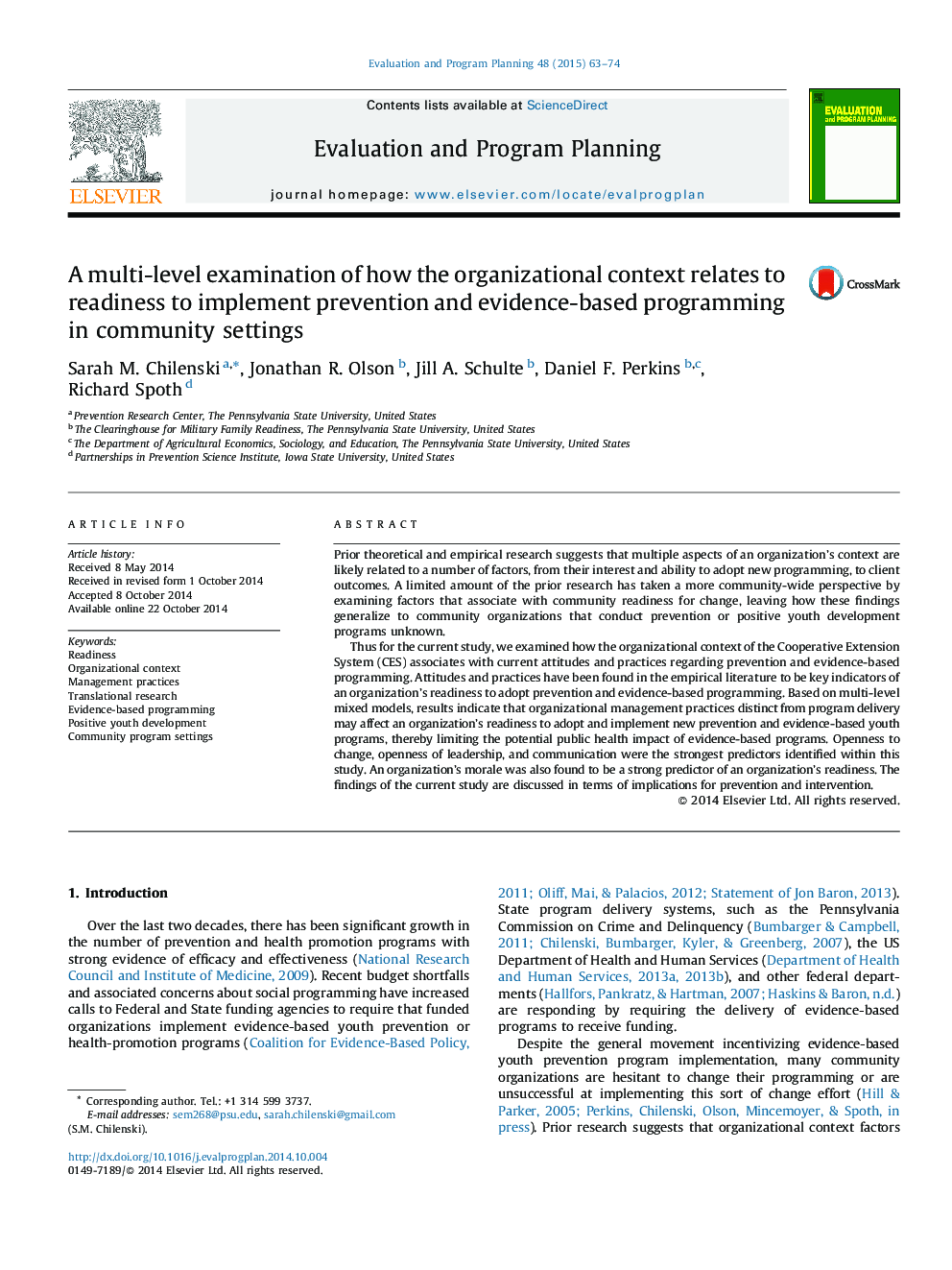| Article ID | Journal | Published Year | Pages | File Type |
|---|---|---|---|---|
| 6793407 | Evaluation and Program Planning | 2015 | 12 Pages |
Abstract
Thus for the current study, we examined how the organizational context of the Cooperative Extension System (CES) associates with current attitudes and practices regarding prevention and evidence-based programming. Attitudes and practices have been found in the empirical literature to be key indicators of an organization's readiness to adopt prevention and evidence-based programming. Based on multi-level mixed models, results indicate that organizational management practices distinct from program delivery may affect an organization's readiness to adopt and implement new prevention and evidence-based youth programs, thereby limiting the potential public health impact of evidence-based programs. Openness to change, openness of leadership, and communication were the strongest predictors identified within this study. An organization's morale was also found to be a strong predictor of an organization's readiness. The findings of the current study are discussed in terms of implications for prevention and intervention.
Keywords
Related Topics
Health Sciences
Medicine and Dentistry
Public Health and Health Policy
Authors
Sarah M. Chilenski, Jonathan R. Olson, Jill A. Schulte, Daniel F. Perkins, Richard Spoth,
